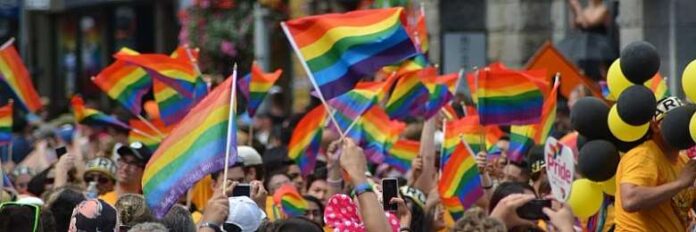Kofi is a respectable, married man with two children. He also describes himself, however, as a “man having sex with a man” (MSM). No one in his community suspects that he has been exposed to HIV, but he tested positive and has been going to the clinic for his antiretroviral drugs on a regular basis.
The antiretrovirals, when administered diligently, have been shown to be highly effective in suppressing the virus in people living with HIV and in preventing the transmission of HIV.
Kofi believes he will get to a point when he is unable to pass on the virus to another person through sexual intercourse.
Kofi, however, is not happy about his living condition. Thus, apart from being disciplined with his antiretroviral drugs, he has joined a counselling and rehabilitation programme that focuses on educating members about safer sexual lifestyles.
Within the counselling and rehabilitation programme they also have access to information on sexually transmitted infections (STIs) as well as products like condoms, to encourage Kofi and others like him to adopt safer sexual practices lifestyles.
Mr Daniel Wilson Ampofo (not his real name) shares this anecdote to highlight his fears about the Proper Sexual Rights and Ghanaian Family Values ( Anti-LGBTQ+) Bill, which is before Parliament.
The Private Member’s Bill funded by some Members of Parliament seeks to make it illegal to be gay or to advocate for gay rights in Ghana.
The Bill further criminalises the promotion and funding of LGBTQ+ activities as well as public displays of affection, cross-dressing and more.
Campaigning for LGBTQ+ persons on social media or online platforms is also prohibited under the Bill.
It, however, seeks to provide for protection of and support for children, persons who are victims or accused of LBBTTQQIAAP+ and related activities and other persons and related matters, but people advocating the rights of these sexual minorities will also be penalised.
The LGBTQ+ Bill and Ghana’s Public Health Situation
Mr Ampofo expresses grave concerns about the public health implications should the Bill be passed in its present form.
The Bill at present seems to criminalise any person who associates with a person who identifies as a homosexual or any of the classifications that falls below Ghana’s “acceptable” sexual values.
Thus, for instance a counsellor who works with a person who identifies as homosexual risks being tagged as a criminal. Professional counsellors, therapists and rehabilitation professionals may, therefore, be discouraged to work with this vulnerable group of persons. Thus, the proposed law could prevent giving sexual advice to vulnerable people.
In this context, it appears you cannot be seen to be sympathetic or empathetic towards a person who identifies as a homosexual.
“Our public health campaigns will take a nosedive should this Bill be passed by Parliament and so many people are going to be affected in the negative by it,” Mr Ampofo says.
Mr Ampofo, who has done some research on the LGBTQ+ community, describes as “unfortunate” the partisan conversations many Ghanaians are having around the Bill, saying: “We are not looking at the possible negative effects it will have on the general public should we push such a bill.
“Acts such as men having sex with men, lesbianism … among others is already going on in the Ghanaian community and some of these people are continuously being engaged by health workers to adopt safer sexual lifestyles, they are educated on STIs, among others.”
Mr Ampofo says some of these vulnerable and minority groups will be forced to abandon seeking health interventions, for fear of being stigmatised and criminalised.
However, they are unlikely to completely abandon their lifestyles, and therefore there is higher risk of spreading sexually transmitted infections – with wider public health implications.
“People are going to go underground to engage in unsafe sexual practices; all efforts put in by organisations such as the Global Fund will go to waste, people will not be able to own up to their health issues and seek help,” he adds.
Mr Ampofo notes that when vulnerable groups, such as men who have sex with men are identified as living with a sexually transmitted infection and given medical treatment, it helps the whole population, not just them.
“Already, there are some of such persons on medication to control, for instance, their viral load, should they be living with HIV.
“Sadly, with how the conversations are going, our public health situation will worsen, it is going to exacerbate,” Mr Ampofo adds.
Health Sector Risk
Mr Ampofo is warning that Ghana’s health sector risks deteriorating since the anti-LGBTQ+ bill will scare health workers who offer services to the community.
The Bill does not guarantee the safety of health workers, or allied health professionals such as counsellors, therapists among others because their acts of offering the health service is criminalised, he states.
“The donor community may also withdraw funding to the health sector because clearly our conversations as Ghanaians around the subject are not friendly and infringes on our human rights laws,” Mr Ampofo states.
He debunks the assumption that it is men who have sex with men who spread HIV infections in Ghana, saying 72 per cent of HIV infections are through heterosexual sexual intercourse.
Conversion Therapy
On the proposed “conversion therapy” in Ghana’s the proposed anti-LGBTQ+ bill, Mr Ampofo asks whether Ghanaians have considered the cost implications of this and asks who would bear the costs of such therapy – the individual or the Ghana Health Service?
He says the conversion therapy is a discredited procedure intended to change a person’s sexual orientation.
“Conversion therapy” is used as an umbrella term to describe interventions of a wide-ranging nature, all of which have in common the belief that a person’s sexual orientation or gender identity can and should be changed.
Such practices aim (or claim to aim) at changing people from gay, lesbian or bisexual to heterosexual and from transgender or gender diverse to cisgender.
A report to the UN corroborates that the conversion therapy may amount to torture.
A UN Independent Expert on sexual orientation and gender identity, Victor Madrigal-Borloz, presenting his latest report to the Human Rights Council, thus encouraged States to “work together to institute a global ban on practices of conversion therapy.”
The expert says that these practices are “inherently discriminatory, that they are cruel, inhuman and degrading treatment, and that depending on the severity or physical or mental pain and suffering inflicted to the victim, they may amount to torture.”
According to Mr Ampofo, he wonders why Ghanaians are encouraging the LGBTQ+ conversation about conversion.
“As far as I remember no person within the LGBTQ community has come out to say that his or her acts should be legalised, no one has said so. This is just propaganda by some people,” he emphasises, urging Ghanaians to be tolerant.
“When you do not like something, it does not mean it should be criminalised. Yes, people consider homosexuality a sin, but so is lying, adultery, fornication and gossip, shouldn’t all these sins be criminalised?”
Mr Ampofo says he is also concerned about the potential economic implications.
“Investors who understand the need for human rights to be respected may be forced to withdraw from Ghana, which will result in a high unemployment rate,” he adds.
Ghana’s HIV/AIDS situation
The Ghana AIDS Commission has cautioned that Ghana’s fight against AIDS will suffer if the anti-LGBTQ+ Bill is passed in its current form.
Mr Kyeremeh Atuahene, the Director-General of the AIDS Commission, says when the Bill is passed in its current state the law will force donors to withdraw critical funding for the management of HIV.
He expressed his fear when he took his turn at a public hearing of the Eighteen-Member Constitutional, Legal and Parliamentary Affairs Committee of Parliament.
He points out that Ghana’s HIV/AIDS programme is largely funded by donors, and their withdrawal would jeopardise the response to the disease.
Donor funding for Ghana’s response covers HIV and TB services for people targeted by the proposed legislation, including men who have sex with men and transgender people.
Inclusion and Criminalisation
Professor Abena Takyiwaa Manuh, a former Director of the Institute of African Studies at the University of Ghana, also says the Bill has no evidence to justify its necessity.
The proponents of the anti-LGBTQ+ bill have cited a Ghana AIDS Commission report that says that there is 18.1 per cent HIV/AIDS prevalence among gay communities, but Prof. Manuh notes they fail to recognise that the larger percentage of Ghanaians living with HIV/AIDS belong to the heterosexual community.
The Group of 18 renowned lawyers and academics also debunk claims that homosexuality constitutes a public health threat and so it should be criminalised.
In opposing the legislation, they explain that criminalisation has been an ineffective and counter-productive tool in controlling the spread of sexually transmitted infections.
“Being inclusive reduces stigma and discrimination against the LGBTQ+ community, as it allows its members to access appropriate medical care, education, and support that will, in turn, promote the health and wellbeing of the wider population,” the Group asserts.
However, Mr Moses Foh-Amoaning, Executive Secretary of the National Coalition for Proper Human Sexual Rights and Family Values, states that there is no threat to public health
He asks: “What is public health when we encourage people to use condoms and lubricants to engage in such abominable acts?”
The purpose of the Ghana Anti-LGBTQ Bill, he emphasises, is to guide people away from “that behaviour”.
There will be no threat to public health campaigns in Ghana should the bill be passed, he declares.
It is obvious that each side of the debate is concerned about some perceived threats the position of the other will pose to the society, and is convinced that theirs is the path to thread.
What is important is to follow the counsel President Nana Akufo-Addo to have a civil debate and tolerance as Parliament works to take a vote on the Bill.
In the end, the decision should not make any Ghanaian less of a citizen and thus unsafe – be he/she a gay, lesbian, bisexual or transgender.















